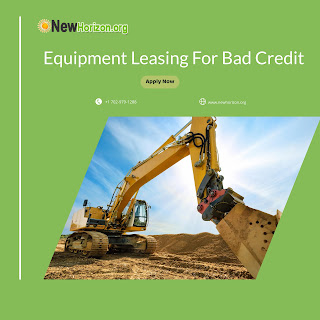Advantages and Disadvantages of Equipment Leasing For Business
Equipment leasing is a great option for cash-strapped businesses or entrepreneurs who do not want to invest their own money or for those looking for equipment leasing with bad credit. These days, all types of equipment can be leased. It can range from complex machinery for a factory to office coffee machines. From the perspective of a lessee, there are several advantages and disadvantages to equipment leasing, which we will discuss below:
The Advantages of Equipment Leasing
A business can obtain the equipment it requires in one of three ways. It can pay cash for the equipment or borrow money/take out a loan from a bank to buy or lease the equipment. Equipment leasing allows a company to upgrade its equipment without incurring a large upfront cost as well as equipment loans for startups. The following are the reasons why businesses choose to lease equipment.
A business (lessee) can obtain
equipment or machinery on lease, particularly if it is regularly upgraded. This
allows the lessee or even business who’s looking for start up equipment leasing
to use cutting-edge technology while also allowing for a shorter lease term.
Instead of purchasing new machinery/equipment, the lessee can lease it from
time to time. This way, the lessee avoids the risk of obsolescence.
2.
Simple Funding Source
Because the leasing process does not
give the lessee ownership, there are fewer complexities for the lessee. Leasing
is a simple way to obtain medium and long-term financing, and the initial cash
outlay is less than that of purchasing. This also aids in the improvement of
working capital flow.
3.
A Term Loan is preferable
Equipment leasing companies
typically process lease contracts in less time. This time is usually shorter
than the time required to process a term loan or equipment loans for startups.
As a result, leasing is a better source of financing than a term loan.
4.
Tax Advantages
When calculating taxable profits,
the lessee's periodic rentals are treated as revenue expenses. This benefits
the lessee because it allows him to reduce his tax liabilities.
The Disadvantages of Equipment Leasing
1.
There has been no change to the asset
Because the lessee is not the owner
of the asset, he is not permitted to make any changes to it. When purchasing an
asset, the buyer has the option to alter or modify the asset to meet his
specific needs.
2.
Increased Cost
The lessee pays the lessor periodic
rentals, which include a margin for the lessor. It is due to the risk of the
leased asset becoming obsolete. As a result, equipment financing is frequently
regarded as high-cost financing.
3.
Asset Use Restriction
There is a risk in an Equipment
Lease Agreement that the lessor will restrict the lessee's use of the leased
asset. In such a case, the lessee may be denied full use of the
equipment/assets. Such a situation may arise if the lessor's financial position
deteriorates or if the lessor's company is liquidated.
4.
Penalties
If the lessee terminates the
Equipment Lease contract before the lease term expires, he is usually required
to pay a fee to the lessor. The lessee suffers a disadvantage by paying the
penalty.
When deciding whether to buy or
lease, consider the benefit of increased cash flow against the cost of leasing
built into your rental agreement. If leasing makes sense for you, this type of
financing can be an excellent way to expand your business.
Is
it Beneficial for Businesses to get Equipment Leasing?
While owning your equipment has many advantages, leasing can free up significant capital for small business owners. A report from the U.S. According to the 2016 Equipment Finance Market Study, 39% of businesses that purchased new equipment leased it, up from 17% in 2012.
Leasing capital equipment frees up cash for growing businesses even from start
up equipment leasing for other financial needs. Perhaps you want to grow but
can't afford to buy new equipment. Or your industry is rapidly changing,
rendering your current equipment obsolete every few years.




Comments
Post a Comment